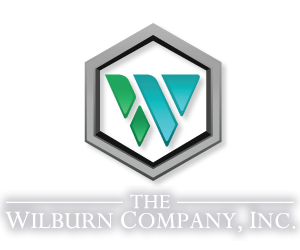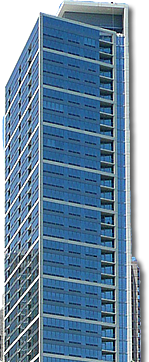
There’s a scene in the early moments of the movie Goodwill Hunting where Will (the main character played by Matt Damon) solves a graduate-level math problem in the hallway of MIT that’s been left on the blackboard as a challenge to students. Within minutes, he’s completely resolved a challenge that’s been unattainable for an entire class of brainiacs.
It’s compelling to watch – not just because genius in action is fun to see, but because Will is not, in fact, a student at MIT. He’s actually a janitor at the school, responsible for scrubbing floors, not solving complex math problems. His resulting accomplishment is a violation of expectations. Who would’ve thought there was genius in a janitor?
That’s part of the problem… and quite frankly, our own industry is mostly responsible.
The Unfortunate Preconceptions of Janitorial Work
That scene works because it plays so well on the cultural preconception that janitorial work is low-skill labor – a preconception that’s both broadly held and blatantly false.
Yes, cleaning work is manual labor. But so is the work of electricians, or carpenters, or plumbers. Those jobs don’t carry nearly the same connotation of low skill (to illustrate, just imagine if Will had been doing work at MIT as an electrician when he solved the math problem – the scene wouldn’t have been as effective). That’s because people generally recognize the training required for that work, and people also generally recognize its value.
Commercial janitorial work also requires training, and it’s also incredibly important, especially when performed with a focus on cleaning for health. Understanding that there is a science behind the products and service delivery methods is a good step forward. Moving from “janitors” toward “environmental hygienists” is a way of reframing the conversation around cleaning work and emphasizing the skill and training required to provide the proper service at the proper level.
Here’s some of what that entails.
A Focus on Cleaning for Health
The focus of cleaning has always been around health and aesthetics: that is, people prefer clean buildings because they look better and they keep people healthy.
Recently, though, there’s been huge progress around how to best keep people healthy through cleaning – because, as it turns out, results that “look clean” can sometimes involve processes that actually harm human health; abrasive chemicals, wasteful processes, and lack of information can result in cleaning that’s bad for people and buildings.
Focusing on health ensures that cleaning happens in a way that’s good for people, not just appearances. It’s a trend that’s closely related to green cleaning, and it involves considerations like:
- Reducing chemical waste through the efficient use of chemicals
- Reducing solid waste
- Optimizing cleaning frequencies
- Providing continuing training to staff
- Ensuring transparent communication with clients and employees
At the Wilburn Company, we’re GS-42 certified, which means we’ve undergone intensive training and review to ensure our company adheres to green cleaning standards.
The reality is that a focus on cleaning for health is vitally important, and it requires a robust accumulation of technical knowledge and skill.
Intelligently-Designed Organizations
It’s not just the cleaning itself that requires skill; for cleaners to provide their best work, they must be supported by optimized processes and intelligently-designed organizations that provide frameworks for successful results.
Again, this takes technical skill.
At the Wilburn Company, we’ve designed our processes to provide the best results for our clients. That involves considerations like:
- Enacting comprehensive, mandatory training for employees
- Maintaining smart growth patterns to best support our clients and improve our capabilities
- Implementing optimized processes for quality assurance
- Providing transparency and accountability for performance across the company
There’s more to cleaning – and cleaning organizations – than meets the eye.
Comprehensive Training
Finally, although we’ve touched on this fact multiple times to this point, it’s worth noting specifically the amount of training required to perform cleaning work well.
This may be the most common misconception around cleaning: that anyone can show up with a bucket and a mop and get the job done.
It’s not true. It takes training – a lot of it, continually, and in many contexts, to give workers the skills they need to do the job well.
That’s why we believe it’s time to move past the term “janitor” and toward the term “environmental hygienist”. The latter term connotes the importance of and technical skill required for cleaning work in a way that former term no longer can. Or, put more simply: when you hear the work janitor, you think “unskilled”. When you hear the term “environmental hygienist”, you think “skilled”.
And you should.
To enable this shift, there’s an upcoming certification for cleaning workers to become Environmental Hygienists. It will involve educational focuses like:
- Basic principles of cleaning for health and the environment
- Green, healthy cleaning procedures
- Chemical use, handling, and tracking
- Site and space specific scope and procedures
…and more. All told, as currently estimated, this certification will require 2,000 approximate hours – another reflection of the skill required for good cleaning work.
To learn more about this upcoming certification, get in touch with us.
Choose Cleaning That Makes a Difference
It’s time to move on from the widespread misconceptions that come with the term “janitor” (even if they made for great movie scenes).
The current misconceptions drastically devalue the work and belie the skill required to do it well. It’s unfortunate for workers, and it can be disastrous for the companies that fail to choose high-quality cleaning services based on inaccurate perceptions of their value.
Instead, it’s time to move toward “environmental hygienists”.
At the Wilburn Company, we’re already there. We’re centered on providing high-quality service through highly-trained employees, we focus on cleaning for health, and we understand the true value of commercial cleaning.
If you’re ready to choose cleaning that makes a difference – cleaning that’s accurately valued and increases your building’s value – get in touch with us online or at 410-789-3320.










